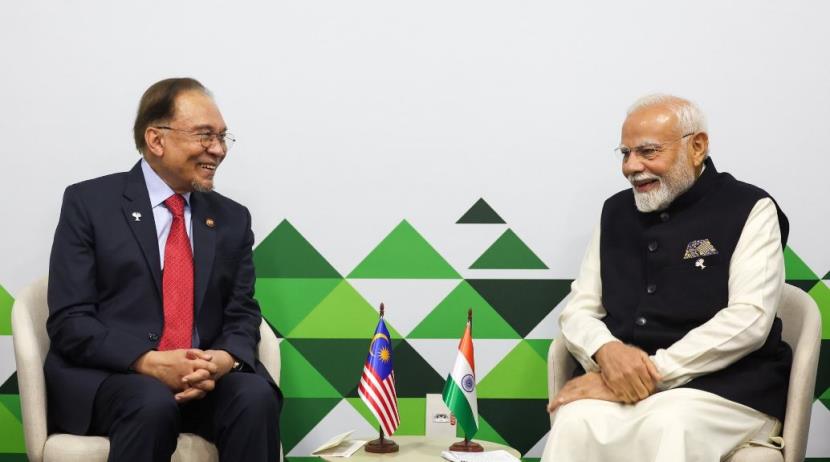Prime Minister Narendra Modi holds talks with Malaysian counterpart Anwar Ibrahim on sidelines of BRICS Summit

Jul 07, 2025
Prime Minister Narendra Modi held a bilateral meeting with his Malaysian counterpart Anwar Ibrahim on the sidelines of the 17th BRICS Summit in Brazil's Rio de Janeiro.
PM Modi also met Cuba's President Miguel Diaz-Canel on the sidelines of the BRICS Summit. The two leaders warmly greeted each other before they began their talks. External Affairs Minister S Jaishankar, Foreign Secretary Vikram Misri and other officials were present during the meeting.
The BRICS summit, hosted by Brazil, brought together leaders from Brazil, Russia, India, China, South Africa, as well as new members Egypt, Ethiopia, Iran, the UAE, and Indonesia. Brazil assumed the BRICS Chairship on January 1, 2025, with the theme 'Strengthening Global South Cooperation for More Inclusive and Sustainable Governance'. India will host the 18th BRICS Summit in 2026.
Meanwhile, addressing the 17th BRICS Summit on Sunday, PM Modi underscored the urgent need for comprehensive reforms in global institutions to address the marginalisation of the Global South as well as the challenges of the 21st century, noting that the Global South has often been a victim of "double standards".
During his address, the Prime Minister highlighted the systemic inequalities and inefficiencies that the Global South faced, noting that the interests of the region have never been "prioritised".
"The Global South has often been a victim of double standards. Whether it is development, distribution of resources, or security-related issues, the interests of the Global South have not been prioritised. On issues like climate finance, sustainable development, and technology access, the Global South has often received nothing but token gestures," he stated.
Pointing to the historical neglect of two-thirds of humanity in 20th-century-formed institutions, PM Modi argued that countries with significant contributions to the global economy remain under-represented at decision-making tables, undermining the credibility and effectiveness of these bodies.
"Two-thirds of humanity has not been adequately represented in the global institutions formed in the 20th century. Countries that have a major contribution to today's global economy have not been given a place at the decision-making table. This is not just a question of representation but also of credibility and effectiveness. Without the Global South, these institutions seem like a mobile with a SIM card but no network. These institutions are unable to deal with the challenges of the 21st century. Whether it is the ongoing conflicts in different parts of the world, the pandemic, the economic crisis, or newly emerging challenges in cyber and space, these institutions have no solutions," he stated.